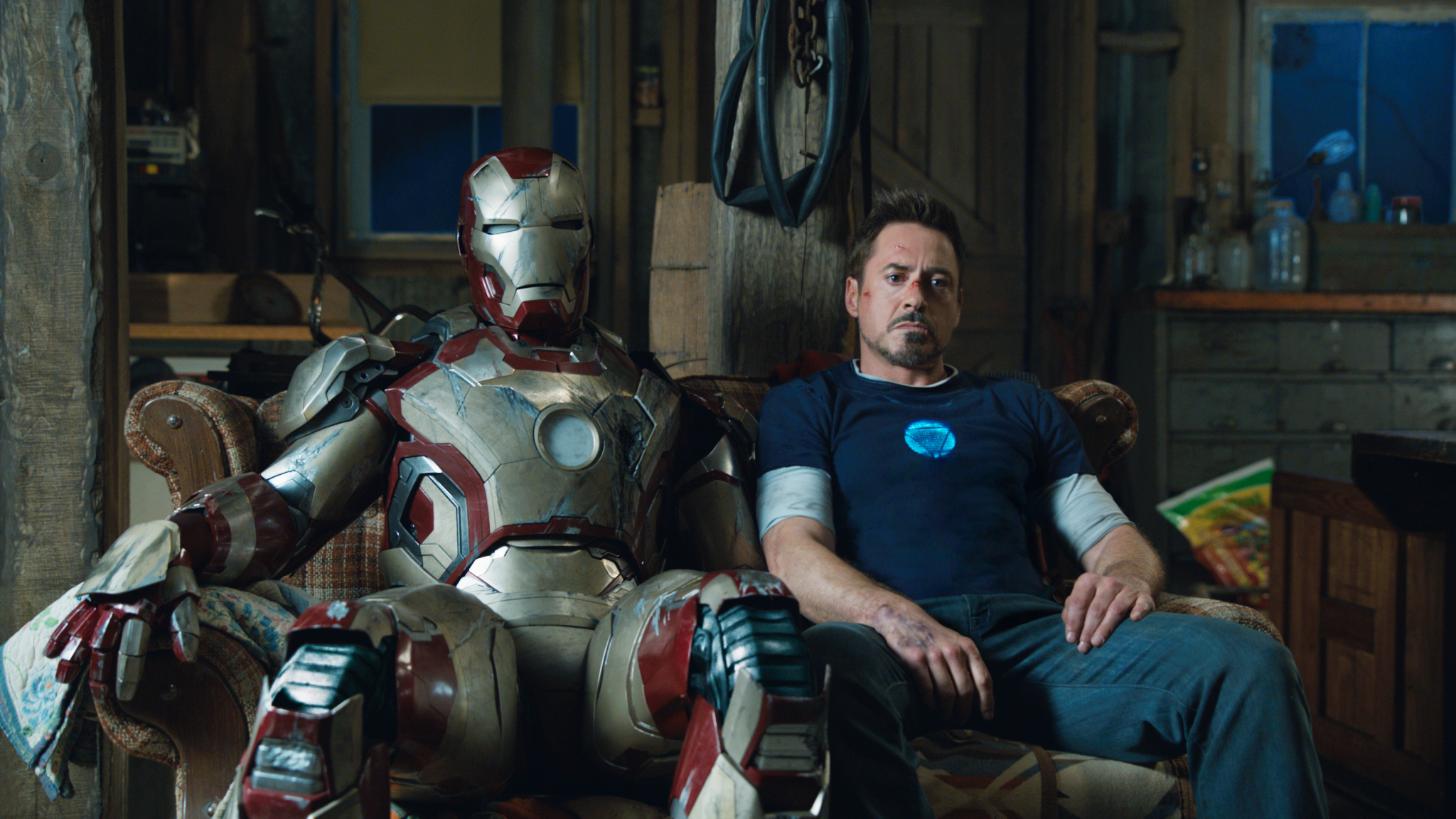An attempt to be helpful when it comes to choosing, describing, and nerding out on movies,
There are stories of coincidence and chance, of intersections and strange things told, and which is which and who only knows? And we generally say, "Well, if that was in a movie, I wouldn't believe it." - Magnolia
13.5.13
Review: Iron Man 3
I think that Iron Man 3 will be remembered as one of the greatest successes of film marketing in movie history. It wasn't the brilliance of the marketing in any specific way, but rather the sheer reach and presence. For anyone who watched TV, accessed the internet, or went anywhere in the last few months, you know what I'm talking about. In his keynote speech at the San Francisco International Film Festival last month, Steven Soderbergh referred to the marketing strategy as "carpet bombing." A tactic studios use to make audiences believe that a movie is going to be an enormous event that should not be missed. After seeing incessant ads, trailers, and posters for it everywhere, the only option left for citizens of the world to forget about this thing is by seeing it. In that regard, Iron Man 3 was a huge success. It now stands as the 2nd highest grossing film of all time next to The Avengers (produced by Marvel, owned by Disney) with a total gross of $949 million as of 20 hours ago posted by comingsoon.net. Now, the question is, does it deserve such recognition or profit?
The answer is a simple no. It does not. Attempting to be a sort of sequel to The Avengers rather than Iron Man 2 (a poor sequel, in my opinion), Tony Stark (Robert Downey Jr.) is supposed to be going through some sort of crisis. He can't sleep, and he begins to experience panic attacks which all seem to relate to what "happened in New York" with the "worm hole." Stark seems to be suffering from the same thing every super hero goes through eventually: who am I really? The hero or a man? This supposed problem with Stark's identity and finding his real purpose is half-hearted at best and never feels serious enough. The over all lame attempts at comedic relief counter-act any chance at the audience taking Stark's crisis seriously. On top of that, the potentially interesting and genuinely evil character and acts of a terrorist nicknamed "the Mandarin" (Sir Ben Kingsley) come off as out of place and too serious when placed alongside the rest of the film. What you get is a muddling of attempts at character development and focusing a plot that end up fighting each other for the spotlight. The audience is unsure of what to make of the human elements at play in the midst of loud, blinding action scequences.
Furthermore, the pacing of the story over all is extremely awkward. Things start off steady with a voice-over by Stark which seems to suggest a target and ending in mind, but things soon get side-tracked as Stark goes off gallivanting around the country to all sorts of locations and meeting all sorts of people. These sidetracks draw attention to the film's overly long running time (2 hours and 20 minutes), and Stark's trouble with fixing his suit and finding equipment to get him to places on time and be able to adequately fight bad guys becomes an analogy for the writers' trouble in finding a way to adequately end the movie. And not to give away any SPOILERS but I'm tired of Guy Pearce as a villain (it's obvious from the first like 5 minutes that he's the bad guy, so it's not really a spoiler). I love him as an actor over all and he's great in lots of movies, but he does villains the same way ever time, and I'm just sick of it.
One part of the film I found most interesting in terms of thematics which doesn't necessarily have a huge impact on the goodness of the film over all was a strange blending of ideals. The character of Stark and his Iron Man suits and weaponry, cars, etc, suggest the old fashioned American hero who goes in guns a-blazing to save the day. He even calls out the Mandarin on TV stating that this is just "good old fashioned revenge" which is what many Americans would like to think the War on Terror began as and is why America has done many of the things it has in the past. All of these things present Stark and Iron Man as symbol of Americanized "freedom" values, I guess you might say. But at the same time, and once again possible SPOILER alert, the real bad guy turns out to be a corporation (which really isn't a surprised since corporations tend to be the bad guys in about 95% of movies these days). The real problem ends up being corporate interests in certain research and war technologies that uses the threat of a terrorist to endorse the need for such technologies. What once seemed a foreign, mysterious enemy far away becomes an enemy very close to home and connected at some of the highest levels of government (sound familiar?). On one hand, Iron Man stands with traditional American values of freedom and action, but on the other, he uncovers and fights against, what some people might call, "traditional" values of capitalism and corporations. So, what does Iron Man truly stand for?
Subscribe to:
Post Comments (Atom)

No comments:
Post a Comment